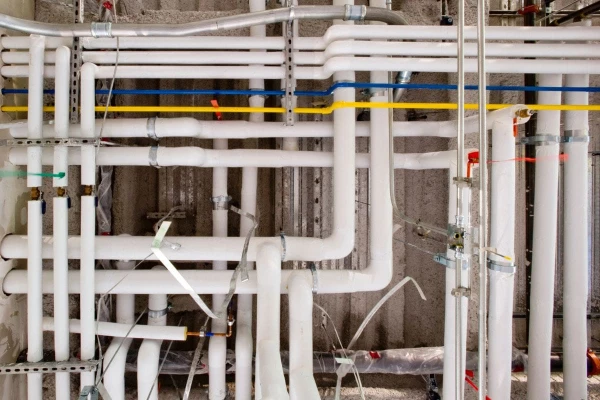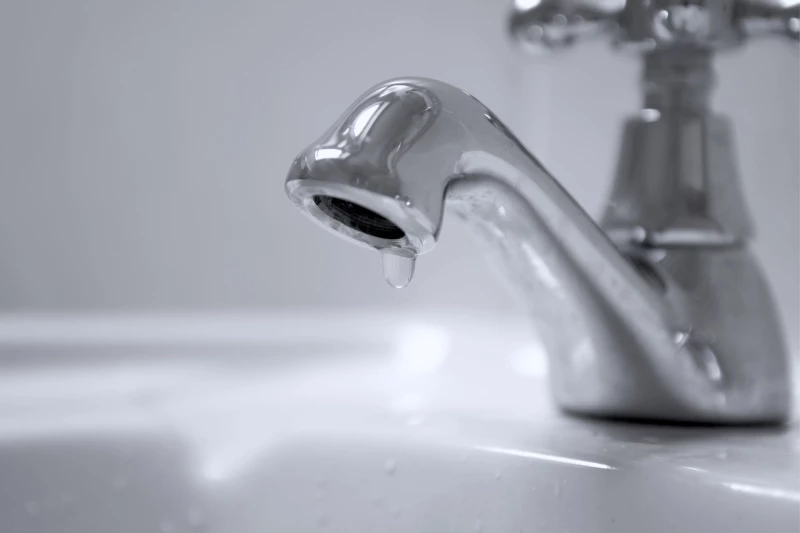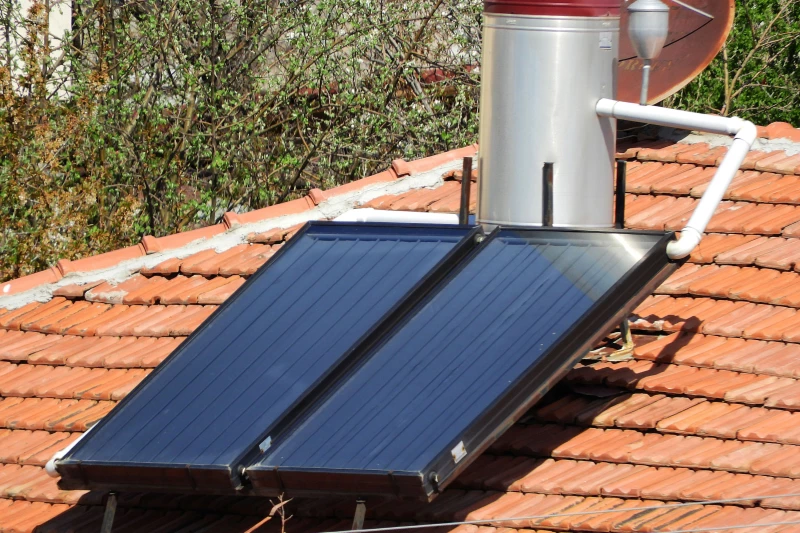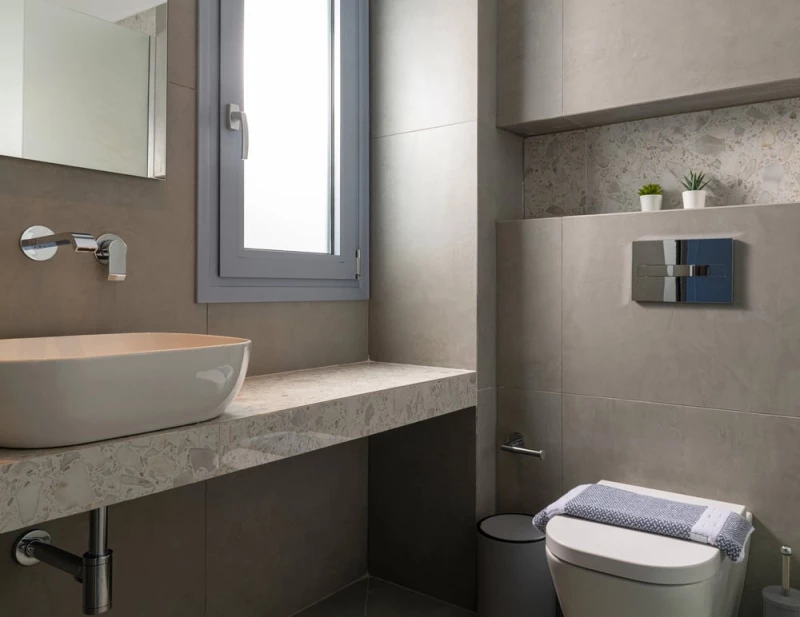When it comes to maintaining the efficiency and longevity of your plumbing systems, pipe insulation plays a crucial role. If you’re dealing with hot water pipes in a home or industrial plumbing systems, pipe insulation ensures that your water heating systems run efficiently while preventing heat loss and condensation. But why is it so important, and how does it benefit both residential and commercial buildings?
What is Pipe Insulation?
Pipe insulation (also known as thermal pipe insulation) is the process of covering pipes with materials designed to reduce heat transfer. This protective layer prevents heat loss in hot water pipes, keeps cold water pipes from freezing in cold climates, and helps maintain the desired temperature of water as it travels through your plumbing system. Pipe insulation materials come in various sizes and types, making them suitable for all applications, from residential homes to commercial businesses.
6 Benefits of Pipe Insulation
1. Energy Efficiency
One of the main benefits of installing pipe insulation is energy efficiency. For hot water pipes, the insulation significantly reduces heat loss during transportation. Water pipes are typically heated by an energy source such as gas, electricity, or solar power. Without insulation, a considerable amount of energy escapes into the surrounding environment, forcing your heating system to work harder. This inefficiency increases energy consumption, leading to higher utility bills.
By using thermal pipe insulation, you can ensure that your hot water stays warmer for longer. This insulation provides maximum energy retention by keeping the heat within the pipes, reducing the need for the water heater to constantly reheat the water. The result? Less energy is used, and you save on your energy bills.
2. Preventing Condensation
Cold water pipes are susceptible to condensation (humid climates). As warm air comes into contact with a cold surface, the moisture in the air turns into water droplets. If your pipes are exposed, this condensation can lead to a range of issues, including damp walls and potential mould growth.
By installing water pipe insulation, you can prevent this condensation. The insulation acts as a barrier that regulates the temperature of the pipe’s surface, reducing the chances of water vapour forming on the outside of the pipe. This is important in environments with high humidity or areas where the air temperature fluctuates dramatically, such as basements, crawl spaces, and attics.
3. Protecting Pipes from Freezing
In cold climates, water pipes are vulnerable to freezing, which can cause serious damage. When water inside a pipe freezes, it expands, potentially causing the pipe to burst. Not only can this lead to expensive repairs, but it can also cause water damage to your property.
Pipe insulation helps prevent this by keeping pipes warmer during cold spells. This is needed for exterior pipes, pipes running through unheated areas, or in industrial settings where systems are exposed to the elements. By insulating these pipes, you lower the risk of freezing and bursting, ensuring a smoother winter season without the headaches of water damage.
4. Thermal Comfort and Hot Water Distribution
For residential and commercial spaces, maintaining a continuous hot water supply is crucial. Insulating your hot water pipes ensures that water reaches your taps at the right temperature, without losing heat along the way. This means your heating systems are more efficient, and you won’t have to wait long for hot water to arrive.
In larger systems found in commercial buildings or industrial facilities, the distance water must travel through pipes can be significant. Insulating these pipes ensures that the hot water stays hot throughout the entire system, making the heating process more efficient and less time-consuming. Pipe insulation ensures that both small homes and large industrial facilities maintain optimal temperatures.
5. Reducing HVAC Workload
HVAC systems often work in tandem with hot and cold water systems. When pipes are not insulated, the HVAC system must work harder to maintain indoor temperature. For instance, heat from hot water pipes can increase the temperature in surrounding areas, making the air conditioning system work harder to cool the space.
Insulating the pipes reduces the overall thermal load, allowing the HVAC system to maintain a consistent and comfortable temperature without overworking. This leads to lower operational costs and an extended lifespan for your HVAC systems.
6. Noise Reduction
In some plumbing systems, water pipes can generate noise as water flows through them. This noise, often described as a “thumping” or “knocking” sound, is known as water hammer. It can be disruptive, particularly in residential buildings or in office spaces.
Pipe insulation helps to minimise water hammer. The insulation acts as a sound barrier, absorbing and muffling the sounds of water travelling through the pipes. This creates a quieter, more pleasant environment in your home or workplace.
Types of Pipe Insulation Materials
There are several materials available for pipe insulation, each offering different advantages depending on the application. Some of the most common types include:
- Fibreglass Insulation: This is one of the most common materials used for both hot and cold water pipes. It offers excellent thermal insulation performance and can be used for high-temperature applications.
- Foam Insulation: Made from materials like polyethylene or polyurethane, foam insulation is ideal for both hot water pipes and cold water systems. It provides a high level of protection against heat loss and is flexible, making it easy to install.
Mineral Wool: Often used in industrial applications, mineral wool is a highly durable material that can withstand high temperatures. It’s commonly used in commercial and industrial buildings. - Rubber Insulation: Flexible and durable, rubber insulation is ideal for pipes that need protection from both heat loss and condensation. It’s often used in both residential and commercial settings.
How to Choose the Right Pipe Insulation
When selecting pipe insulation for your home or business, there are several factors to consider:
- Temperature Requirements: Make sure you choose insulation that suits the temperature range of your water pipes. Some insulation materials are better suited for high-temperature applications, while others are designed for colder climates.
- Pipe Diameter: The insulation should fit snugly around the pipe. If you’re unsure about the pipe diameter, take measurements before purchasing insulation to ensure a proper fit.
- Material Type: Depending on your needs, the insulation material should offer either maximum thermal performance or resistance to external conditions such as humidity or freezing.
- Environmental Impact: Some insulation materials are more eco-friendly than others, so if sustainability is important, consider options including rubber or foam insulation, which are often made from recycled materials.
Pipe insulation is a necessary investment for anyone seeking to enhance the energy efficiency and longevity of their plumbing systems. From preventing heat loss in hot water pipes to protecting against freezing and condensation, the benefits of pipe insulation extend across various applications, both residential and commercial. Insulating your pipes is a practical, cost-effective solution for lowering operational costs and protecting your property. So, if you’re looking to improve your plumbing system’s efficiency and overall performance, pipe insulation is a step you shouldn’t overlook.
Get in contact with Swan’s plumbing today for all of your plumbing needs!




